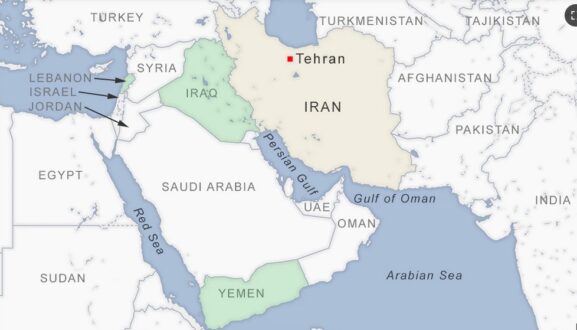Iranwire – Amid rising tensions between the Islamic Republic of Iran and the European and U.S. governments, officials in Tehran have threatened to block the strategic Strait of Hormuz.
Tehran issued similar threats in the past, but this time the Iranian parliament entered the field, with an MP saying that the legislature was preparing a resolution to block transit through the strait.
The narrow waterway located at the mouth of the Persian Gulf is crucial to global energy supplies, with about one-fifth of all oil traded at sea passing through it.
“We will follow a plan that will limit the traffic of European commercial ships in the Strait of Hormuz, and if the European Parliament does not back down from its decision, they can be sure that we will take measures in our own parliament,” MP Mohammad Hassan Asefari said.
Asefari’s comments came after European lawmakers voted last week to call on the European Union to include the Islamic Revolutionary Guards Corps (IRGC) on the bloc’s terrorist list.
The parliament’s current speaker is IRGC Brigadier General Mohammad Bagher Ghalibaf. It said in a statement that labelling the IRGC a terrorist organization would have negative consequences for institutions affiliated with European military organizations.
Why Iran thinks it can block the strait?
The Strait of Hormuz is an international water crossing located between the Persian Gulf and the Gulf of Oman. It is about 50 kilometers wide at the narrowest point between Oman and Iran.
Big vessels are confined to an even narrower shipping lane in the shallow waters, which makes the Islamic Republic think that by blocking the ships’ passage in Iran’s territorial waters, it can practically block transit in the Strait of Hormuz.
The IRGC’s fast boats, which are present in the Persian Gulf, could interrupt shipping in the area for a while.
Does international law allow Iran to block the Strait of Hormuz?
The fast answer to this question is “no.”
According to the United Nations Convention on the Law of the Sea (UNCLOS), the Strait of Hormuz is an international strait, and it provides the only sea passage from the Persian Gulf to the open ocean.
The right of transit passage governed by UNCLOS applies to the Strait of Hormuz. Although cargo ships must pass through the territorial waters of Iran and Oman to enter or leave the Persian Gulf, neither country can obstruct transit.
The Iranian government has signed UNCLOS, but parliament has not ratified it. However, Iran must adhere to its provisions and refrain from any action that would lead to a clear violation of the convention.
When it signed the document, Iran announced it would recognize and implement the right of transit passage only for countries that have joined this convention too. All member states of the European Union have signed the convention.
What regulates shipping through the Strait of Hormuz?
Shipping through the Strait of Hormuz is regulated by the International Maritime Organization (IMO).
Big ships must enter Iran’s territorial waters to enter the Persian Gulf, and they must pass through Oman’s territorial waters when they leave the waterway.
Iran and Oman are required to take all necessary measures to facilitate the passage of cargo ships, including by providing navigation services and installing guide signs, which they get paid for through taxes.
During wartime, countries around the strait don’t have the right to block transit, but they are allowed to visit cargo ships.
Therefore, the Islamic Republic cannot legally prevent US Navy vessels or Israeli ships from passing through the Strait of Hormuz.
What about the Iranian parliament’s planned resolution?
No resolution or law voted by the Iranian parliament to block transit in the Strait of Hormuz would be acceptable from the point of view of international law.
If the Islamic Republic, with or without the approval of parliament, blocks transit, even temporarily, the navies of the United States and other members of the international coalition ensuring maritime security in the Persian Gulf would enter into action promptly.
 Shabtabnews In this dark night, I have lost my way – Arise from a corner, oh you the star of guidance.
Shabtabnews In this dark night, I have lost my way – Arise from a corner, oh you the star of guidance.



